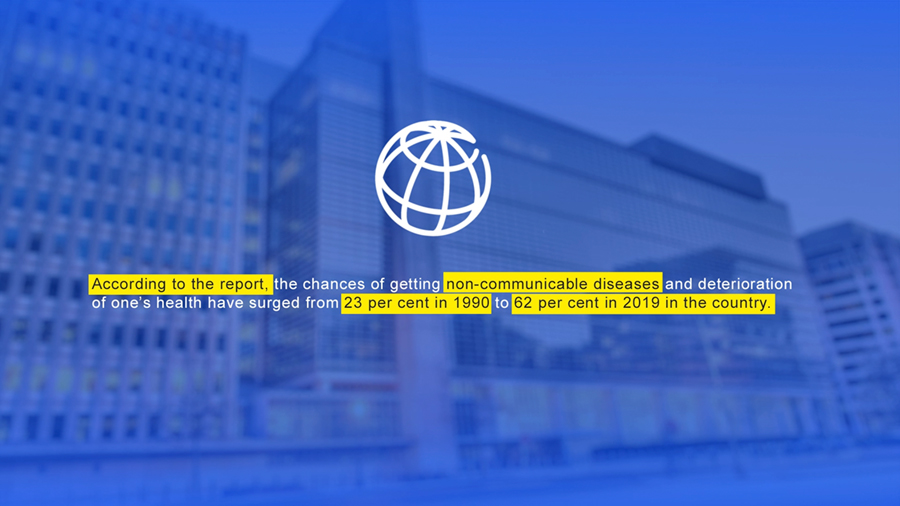
The chances of getting non-communicable diseases, NCDs, have rapidly increased among Bhutanese over the past three decades. According to the World Bank’s report on Sustainable Health Financing in Bhutan, the increasing number of people living beyond 65 years is leading to more people getting non-communicable diseases like heart conditions, cancer, and diabetes. The risk of getting NCDs, according to the report, is higher in Bhutan than neighbouring countries like India and Nepal.
According to the report, the chances of getting non-communicable diseases and deterioration of one’s health have surged from 23 per cent in 1990 to 62 per cent in 2019 in the country.
The report further states that the proportion of individuals aged 65 and above will nearly triple from six per cent today to 16 per cent in 2050.
So, this ageing population will increase the burden of non-communicable diseases including heart and respiratory diseases, cancers, and diabetes leading to death before the age of 75.
Considering the need to prevent and control non-communicable diseases, the health ministry has integrated the World Health Organisation’s intervention strategies in primary healthcare since 2009.
Bhutan also passed the Multi-Sectoral National Action Plan for the prevention and control of non-communicable diseases in 2015.
Moreover, the health ministry’s Service with Care and Compassion Initiative launched in 2018 ensures that all patients visiting hospitals are screened for non-communicable diseases.
The report highlighted the need for increased health expenditure to prevent NCDs. It states that targeted investments in primary healthcare improvement would help mitigate and manage the growing NCD burden and help improve overall efficiency of the country’s health financing system.
Meanwhile, the report states that work done in the healthcare services for communicable diseases has shown productive results.
The country managed to reduce infant mortality rates from over 80 deaths per 1,000 live births in 1990 to a little over 20 deaths in 2019. The number of deliveries made in hospitals has also reached almost 100 per cent from about 30 per cent 20 years ago.
Similarly, the national strategy to eliminate malaria has reduced deaths from malaria to almost zero.
Namgay Dema
Edited by Tshering Zam









